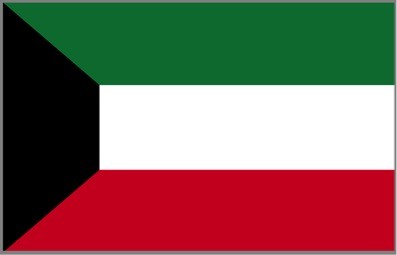
With a population of just over 4.5 million, Kuwait may be one of the smaller nations in the Persian Gulf, but its historical and cultural significance to the area can’t be overstated.
Saudiwakala makes it easier than ever for people in the UK to apply for a Kuwait visa, whether they’re visiting for business or pleasure. Our application process saves you having to worry about sending your own passport and forms to the Kuwaiti Embassy.
Instead, our expert team handles all of your documentation and submits your information, saving you the additional costs of Kuwait visa fees, as well as general administrative complications.
finished in 1-2 working day
We break the process for Kuwait visa application down into the following four steps:
| Types of Visa | Service duration | Fees GBP (£) |
|---|---|---|
| Family Visa | Fast: Completed within the same working day Standard: Completed within 3-4 working days | From £199.00 |
| Work Visa | Fast: Completed within the same working day Standard: Completed within 3-4 working days | From £199.00 |
A nation made up of nine separate islands, Kuwait is home to the sixth largest oil reserves in the world, which is the primary driving force behind its economy, accounting for 50% of its GDP. As such, it has become a highly desirable place to do business.
Despite being located in one of the most arid parts of the planet, Kuwait—and its capital city in particular—has become a thriving business metropolis.
Its population is primarily made up of expats, who make up 70% of Kuwait’s citizens. Kuwait’s primary religion is Islam, and despite its secular court system, Islamic law is a key part of the nation’s legal system, hence why alcohol is prohibited.
Recently, Kuwait’s business culture has undergone a huge transformation, with startups and Instagram shopfronts capturing the imaginations of a new generation of Kuwaiti consumers.
Kuwait is the fourth richest country on Earth, and the second richest in the Middle East. thanks to its vast oil reserves. Oil was first discovered in Kuwait in 1937, nearly four decades after the country fell into British control at the tail end of the 19th century. The country gained its independence in the early sixties, and spent nearly fifty years warring with other nations over control of its petroleum reserves.
In spite of this, and as a result of its petroleum economy, Kuwait’s currency—the dinar—is the world’s highest-valued. As such, it provides a great deal of financial aid to other nearby countries, through state programs such as the Kuwait Fund For Arab Economic Development.
A nation made up of nine separate islands, Kuwait is home to the sixth largest oil reserves in the world, which is the primary driving force behind its economy, accounting for 50% of its GDP. As such, it has become a highly desirable place to do business.
Despite being located in one of the most arid parts of the planet, Kuwait—and its capital city in particular—has become a thriving business metropolis.
Its population is primarily made up of expats, who make up 70% of Kuwait’s citizens. Kuwait’s primary religion is Islam, and despite its secular court system, Islamic law is a key part of the nation’s legal system, hence why alcohol is prohibited.
Recently, Kuwait’s business culture has undergone a huge transformation, with startups and Instagram shopfronts capturing the imaginations of a new generation of Kuwaiti consumers.